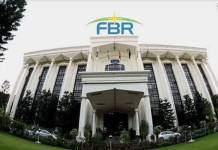ISLAMABAD, SEPT 2: The Senate panel on privatisation has been informed about the possibility of Pakistan International Airlines’ (PIA) privatisation by November 2025, The News reported on Tuesday.
The Secretary of the Ministry of Privatisation apprised the committee that four companies are participating, and they will need to form consortiums with established airlines to operate PIA while two applicants were disqualified for not meeting standards.
The standing committee with Senator Dr Afnan Ullah Khan in the chair held its meeting to review progress on key privatisation initiatives, including the PIA, power distribution companies (DISCOs), generation companies (GENCOs), and the Pakistan Minerals Development Corporation (PMDC).
The agenda focused on the compliance status of previous recommendations, the impact of phasing out single-buyer model, and the latest developments in the privatisation of state-owned enterprises.
Senator Zeeshan Khanzada raised concerns over PIA’s Rs650 billion debt, to which Chairman Afnan Ullah Khan suggested that PIA’s two hotels could be sold to offset liabilities. The committee also discussed PMDC’s performance. Chief Financial Officer (CFO) of PMDC reported significant progress in coal and salt mining, with new investments in value-added salt and soda ash production.
However, Senator Umer Farooq strongly opposed its privatisation, stating, “This Company benefits Balochistan immensely. “It is profitable and should not be privatised,” he said. Chairman Afnan Ullah Khan clarified that the meeting’s agenda was only to review the corporation’s performance, not to decide on its privatisation.
Power Division officials informed the committee that Nandipur Power Plant and Guddu Power Plant are on the privatisation list, and under privatisation process. “Eight important issues of Nandipur have been resolved, with only one pending related to the gas purchase and sale agreement,” officials said.
They added that the government is still deciding whether to provide dedicated gas supply or continue the current arrangement of supplying gas only when available.
Regarding Guddu Power Plant, officials noted that four out of nine issues have been resolved while he remaining disputes include land transfer, as the plant’s land is still registered under WAPDA. “WAPDA has already issued an NOC, and the transfer process is underway,” they said.
Senator Dr Afnan Ullah Khan underscored the importance of resolving the energy supply issue for privatisation success.
“Gas availability in the country is a crucial concern. Until the investor has guaranteed gas, how will electricity be generated?” he questioned.
He further noted that a long-term gas supply agreement will be key for privatisation, but the preparations of the Power Division still appear incomplete.
Officials from the Power Division confirmed that Nandipur will receive LNG supply while Guddu will be supplied gas from Kandkot field. They also revealed that a special market operator company has been established to open up the power purchase and sale market, with 3,000 MW expected to be traded in the first phase.
On the Privatisation of DISCOs, officials stated that three companies are currently on the privatisation list.
The Privatisation Secretary highlighted: “The financial advisor engaged for DISCOs has completed significant groundwork. The government has decided at the highest level that it will not do business anymore.”
Senator Zeeshan Khanzada questioned the strategy, asking, why was the government selling profitable companies in the first phase.
The Privatisation Secretary responded: “Investors are naturally more interested in profitable companies. Even if government entities were given away for free, it would still be the right decision because they may not remain profitable in the future.”
Concluding the session, the committee emphasised the need for clarity on energy supply agreements, debt restructuring, and protection of profitable state assets before moving forward with privatisation.

















